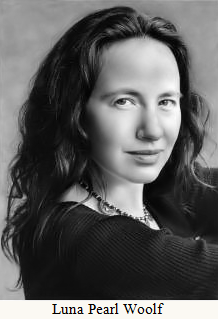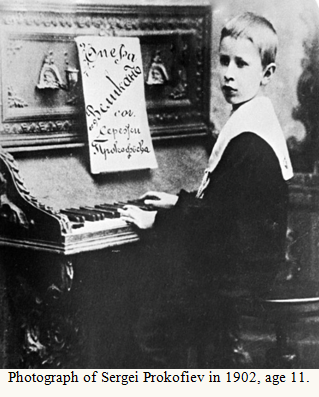Luna Pearl Woolf

Wild Rumpus! Stories of Laughter and Love
Five Bagatelles (2010)
A wild rumpus – complete with a king’s fanfare – holds the heart of this set of solo piano pieces, which was inspired by Maurice Sendak’s Where the Wild Things Are, and written with the sounds of childhood in mind. A young girl is heard dancing and singing to herself in one piece, and a soothing lullaby in another. The set is framed by two movements, which form an exact palindrome of each other, just as in Sendak’s beloved story we begin and end, “in and out of weeks and through a day,” in Max’s very own room.
Rumi: Quatrains of Love (2012)
In these short songs for soprano, cello and piano, the feeling of love is explored in all its inexplicable guises. With texts such as “We are walking through a garden…”, “The minute I heard my first love story…” and “The breeze at dawn has secrets to tell you. Don’t go back to sleep,” one quatrain brings them all together: “Do you think I know what I’m doing?...As much as a pen knows what it’s writing, or a ball can guess where it’s going next.”
Sergei Prokofiev (1891-1953)
Peter and the Wolf, Op. 67 (1936)
Sergei Prokofiev was a Russian composer who lived from 1891 to 1953. Though Prokofiev’s parents came from rather humble backgrounds, they loved music and encouraged their son’s amazing talent. At the age of ten years old, Prokofiev was sent to study with some of the best teachers in Russia. His talent continued to be nurtured, but Prokofiev was also a bit eccentric. He loved strange combinations of harmony and sound, and would often question his more conservative teachers. By his late teens, Prokofiev was considered one of the best pianists in Russia. But as a composer many thought him to be a musical rebel.

While Prokofiev was still a young man, the country of Russia went through a violent revolution. Many artists and intellectuals were being persecuted by the new and radical government, and in 1918 Prokofiev chose to leave the country rather than risk being arrested, or even executed. For the next eighteen years, Prokofiev made his living as a traveling virtuoso pianist both in Europe and America. But eventually Prokofiev became homesick. He disliked being so far away from his home country. And he also wanted to devoted more time to composing, something that was difficult to do while traveling and performing.
In 1936 Prokofiev finally got his wish and returned to Russia. Upon his return, one of the first pieces he wrote was Peter and the Wolf. The piece was commissioned by Natalya Sats and the Central Children's Theatre in Moscow. Prokofiev was very excited by the idea of composing music that could excite the imaginations of children, and composed the whole piece in only four days. Peter and the Wolf was originally composed for a full orchestra, with many different instruments playing the parts of various animals and characters in the story. But because Prokofiev was such a great pianist, he also made a version for just solo piano, so the music could be enjoyed even without a an entire orchestra present.
